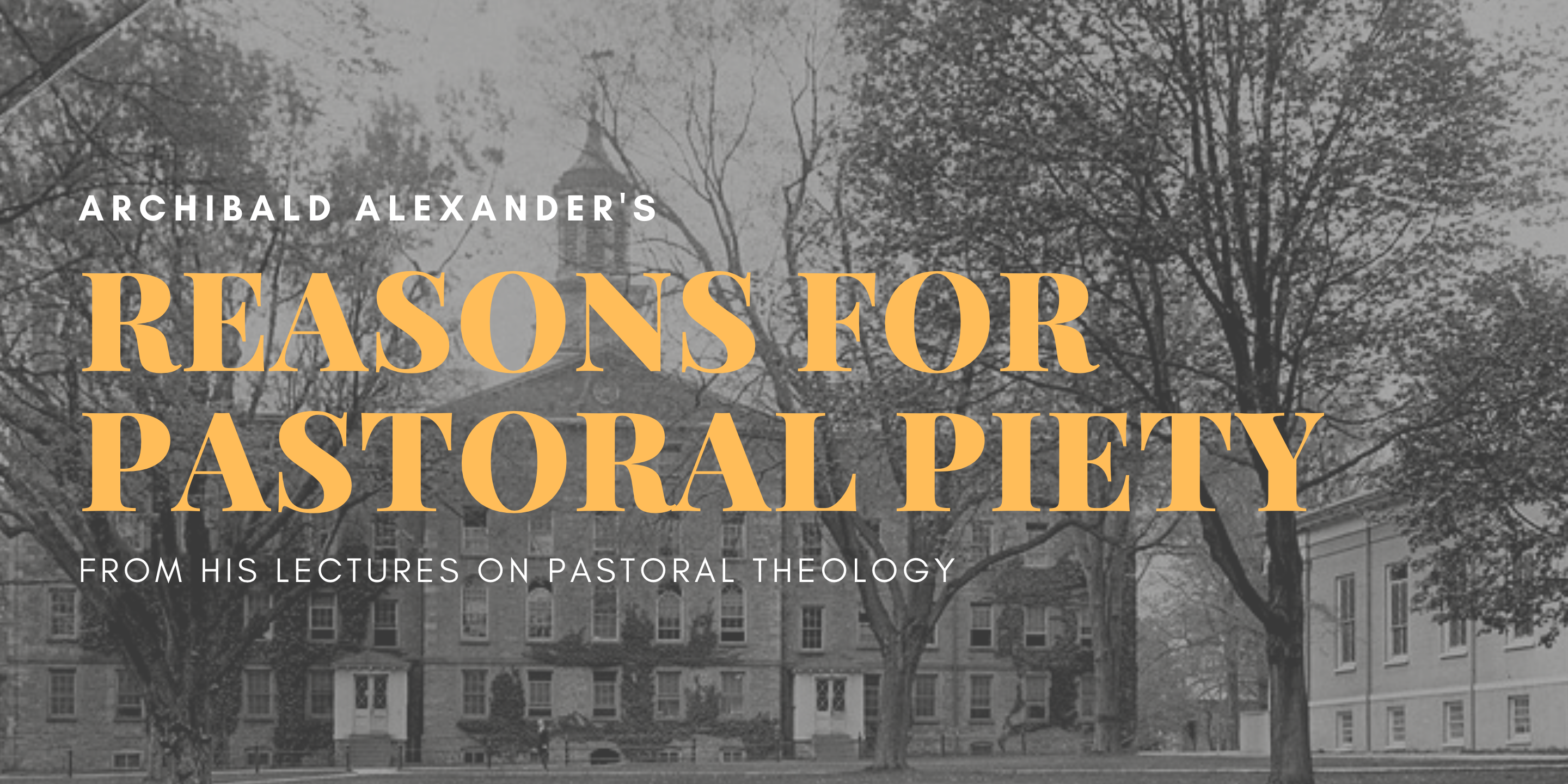
This semester, I’m teaching a course on preaching at RTS-Dallas. One of the required textbooks is James Garretson’s Princeton and Preaching: Archibald Alexander and The Christian Ministry. The original Princeton men didn’t get everything right, but they got most things right—especially the accent on “vital piety” in ministry. The mandate for personal holiness is all but absent from popular, pastoral discourse these days. If the trend goes unchecked, a ministry of power will be hard to find. I pray the Lord would revive us in ministerial godliness being a chief delight and ambition. It’s why my class begins with a few hours worth of attention to the need for Christ’s preacher to be “a man of God.”
A Nursey of Vital Piety
Samuel Miller famously declared that Princeton Seminary must be “a nursery of vital piety as well as of sound theological learning, and to train up persons for the ministry who shall be lovers as well as defenders of truth as it is in Jesus, friends of revivals of religion, and a blessing to the Church of God.” It was not enough to train students in original languages. Yes, they needed to know Francis Turretin’s definitive and distinctive work. And it surely wasn’t a bad thing that your average student knew how to exegete Scripture in any season. But the founders knew that the Presbyterian church would suffer if her students didn’t expand their hearts’ love for Christ.
So, they pled for personal holiness.
14 Reasons Why It’s Needed
You need only scan the essential writing from the Princeton professors to see how universal was this concern. In one of his pastoral lectures, Archibald Alexander gave fourteen reasons why students should train themselves for godliness.
- Some degree of eminence is requisite for our own satisfaction.
- The work is so great and sacred, and the consequences so awful, that none will duly feel and act under the responsibilities of the office, but one whose heart is warmed with fervent love to Christ and the souls of men.
- The duties of the ministry will never be faithfully performed by any one but he who is deeply under the influence of divine truth. He will become indolent and careless or will sink into discouragement—or will become entangled with worldly engagements.
- He will not be able to converse with edification to the people without this.
- It is necessary to preserve the minister from ambition and vain glory.
- Necessary to make him to speak with confidence of the excellency and comforts of true piety.
- Eminent piety is requisite to enable a minister to compose sermons induced with the right spirit. To feed the devotions of the people, etc.
- Without a good degree of eminence in piety, the minister’s example will not be savory and consistent. It is necessary to preserve him from sin. He should be higher than all the people in spiritual attainments.
- It will greatly increase his influenc.e
- Will enable him to bear with patience the persecution of enemies.
- It will be better than all rules of rhetoric in the delivery of sermons.
- It will make the work of ministry delightful.
- Will prepare for sickness and death.
- Eminent piety will diffuse a solemn seriousness, over the manners. Gravity, composure of countenance—dignity of demeanor—propriety in every word, look and gesture.
Essential for Faithfulness
As Garretson comments, “Christian graces were essential if men were to prove to be faithful servants of Christ. Fidelity, humility, self-denial, diligence, temperance, and a ‘habitual concern for the welfare of the Church’—these were among the marks of ministerial godliness that would result in a ministry owned and blessed by God.”
